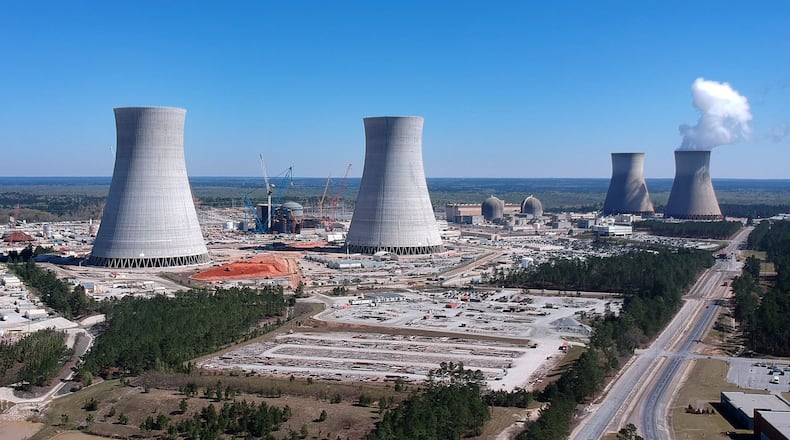Georgia Power's parent company is warning investors that the coronavirus pandemic could disrupt its nuclear power expansion at Plant Vogtle, a project that already is far behind schedule.
Still, it is “too early to determine what impact, if any, the COVID-19 outbreak will have on the current construction schedule or budget” for Vogtle’s two new nuclear-reactor units, Atlanta-based Southern Company said in a filing Wednesday with the U.S. Securities and Exchange Commission.
Many U.S. businesses have cautioned that the pandemic has cut into their activities and scrambled financial projections.
Long before the new coronavirus issue, the Vogtle project was billions of dollars over budget and years behind its original schedule. Monthly electric bills of Georgia Power customers already include finance costs and some company profits related to the project. Additional expenses are expected to be added to bills later.
Last fall, Georgia Public Service Commission staff and consultants cautioned that unless performance improved considerably, the latest deadlines for commercial operation of the new reactors by November 2021 and November 2022 would be "significantly challenged." Southern officials previously said they expected to make the latest deadlines.
In the company’s latest SEC filing, Southern warned that the pandemic and related government responses could reduce demand for energy, particularly from commercial and industrial customers, and hurt the company’s ability “to develop, construct and operate facilities and to access funds from financial institutions and capital markets.”
It particularly highlighted the potential for Vogtle project delays. The company’s Southern Nuclear Operating Company subsidiary has taken steps “designed to mitigate the risk of transmission at the construction site, including worker distancing measures, isolating individuals who are showing symptoms consistent with COVID-19, being tested for COVID-19 or who have been in close contact with such persons, requiring self-quarantine and adopting additional precautionary measures.”
About the Author
Keep Reading
The Latest
Featured


